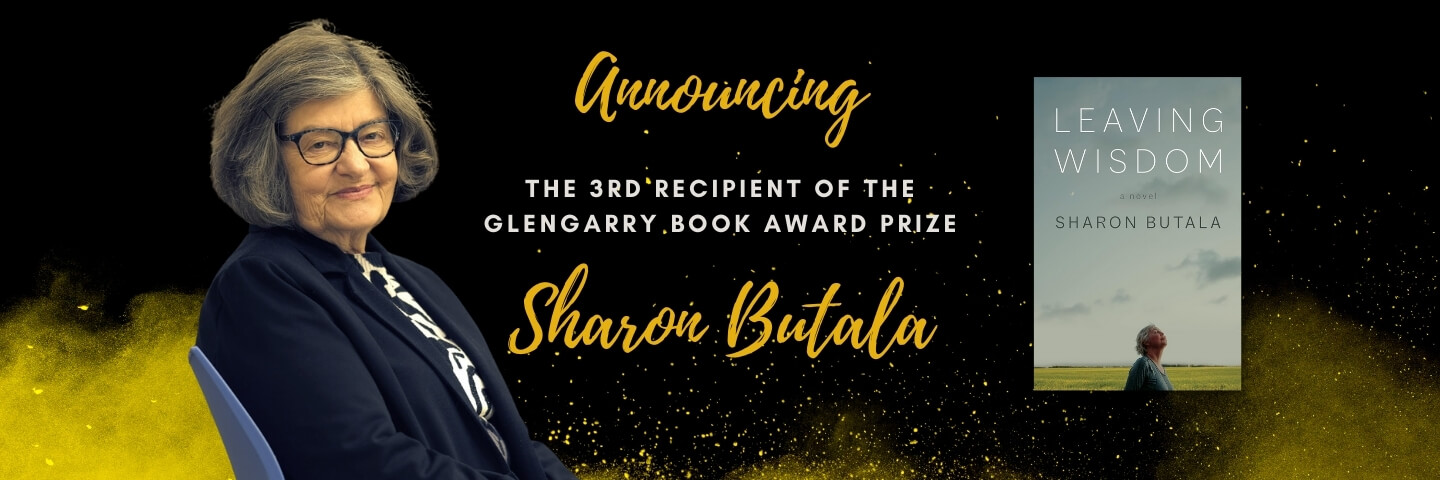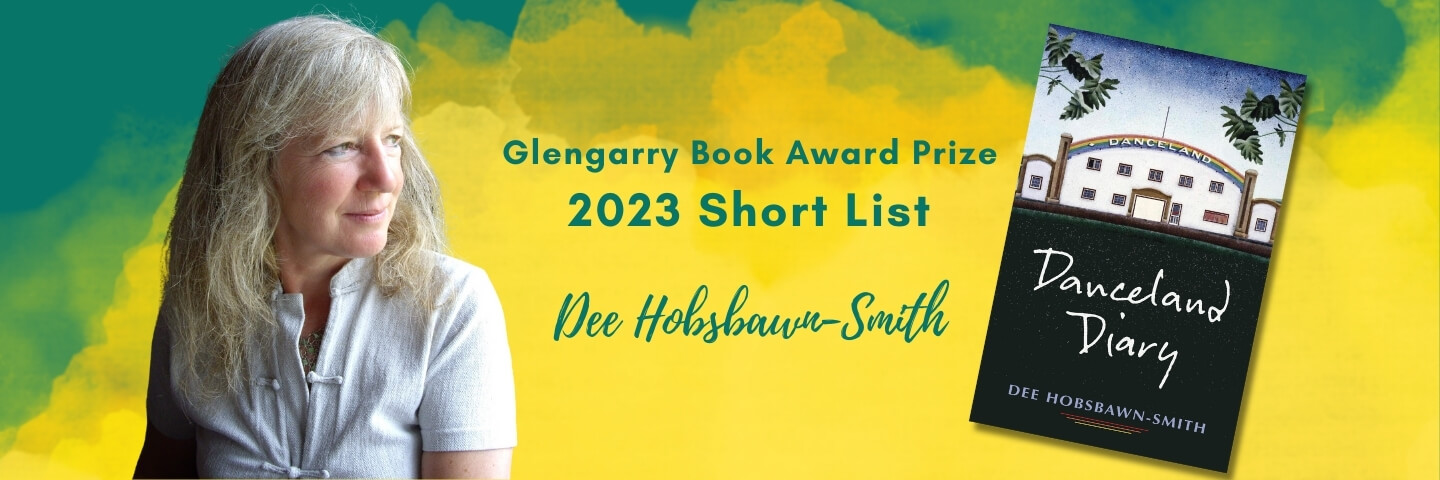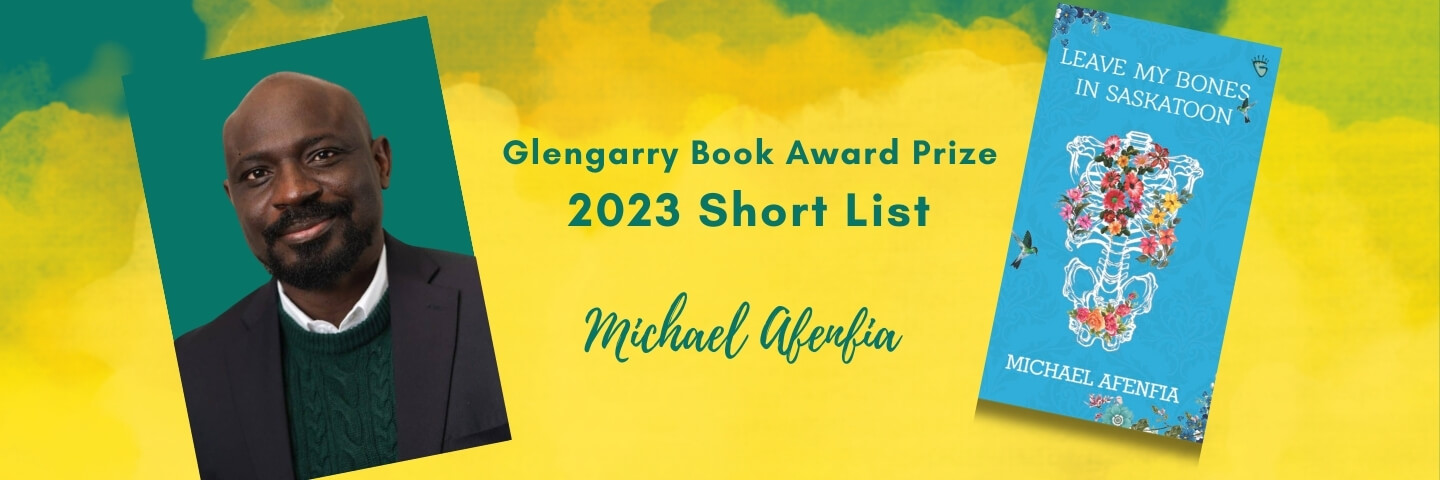Launched by the Saskatchewan Foundation For the Arts (SFFA) 2021, the Glengarry Book Award Prize was created to support and foster Saskatchewan’s literary culture. The Glengarry Book Award Prize is an annual award for the first edition of an English language novel or book of short fiction. This award is the vision of donor and book lover Claire Kramer, a founding trustee of the SFFA.
The annual $20,000 (CAD) prize celebrates authors with Saskatchewan roots. In its third year, the SFFA is proud to announce Sharon Butala as this year’s recipient of the province’s largest literary prize.

SHARON BUTALA – The Glengarry Book Award Prize
Sharon was born in Nipawin in 1940 to Amy and Achille (Archie) Le Blanc and has four sisters. She has lived over 60 years in Saskatchewan, beginning school in a tiny convent and then a one-room eight-grade school, later was as a schoolchild in Saskatoon, followed by nine years on the University of Saskatchewan campus as student and teacher, has been an educator in several provinces, and spent 33 years as a rancher’s wife in Saskatchewan’s remote southwest. At 38 she began writing and at 44 published the first of her 22 books. In 1996 she and her husband Peter, with the provincial government and the Nature Conservancy of Canada, saw their ranch become the Old Man On His Back Prairie and Heritage Conservation Area. Sharon has three Honorary Doctorates, is an Officer in the Order of Canada and is invested in the Saskatchewan Order of Merit. Her son is the actor Sean Hoy and she has two grandchildren. Leaving Wisdom is her ninth novel.
Sharon Butala’s new novel begins with the wrong kind of bang when retiring social worker Judith falls on the ice on the way to her retirement party. The debilitating concussion that follows seems to shake loose a confusing whirl of memories.
Judith is a mother of four, and her relationships with her daughters are complicated. They all seem to have men trouble, except for the wild daughter who seems to have settled down, inexplicably to Judith, in Jerusalem. With her ears still ringing and her strength compromised by a shaky recovery, Judith leaves Calgary and, to everyone’s bewilderment, moves back to the town near the family farm. In Wisdom, Saskatchewan, she confronts many unanswered questions: Why was her father, a World War Two vet, so troubled? What are her brother and sister hiding from her? As she pursues answers to unsolved mysteries in her own life, more complicated and wider ranging questions arise.
Living in a small town is a shock after the anonymity of a big city. Judith finds herself exposed to watchful neighbours, and she is watchful in turn, seeing things that are mystifying at first–and then alarming. Small town bigotry and what looks like a serious crime unfolding in the house next door make her return even more difficult–what is she doing here? Does she have enough wisdom to unravel her past? Does she have a future in a place where she is not exactly welcome?
This thought-provoking and very readable tale shows not only the suffering that comes from family secrets, but also unfolds one woman’s late life awakening to the complex shadows cast by World War Two and the Holocaust.
2023 GLENGARRY BOOK AWARD JURY SHORT LIST for ‘Recognition of Literary Excellence’
Managed and administered by the SFFA, The Glengarry Book Award Prize selects its jury from a pool of Canadian authors, literary publishers and organizations. The 2023 jury members were author Marina Endicott, Glenda MacFarlane, editor of Scirocco Books in Winnipeg and writer Maggie Siggins, and was chaired by Valerie Creighton, CEO of the Canada Media Fund.
Shortlisted novels for the 2023 Glengarry Book Award Prize include Dee Hobsbawn-Smith’s Danceland Diary, and Michael Afenfia’s Leave My Bones in Saskatoon.

Luka Dekker and her sister Connie are the inheritors of a secretive and disturbing family history going back three generations to the disappearance of their great-grandfather. Their troubledmother, Lark, also mysteriously disappeared; and their beloved grandmother, who raised thetwo girls, had a life haunted by a traumatic event that is only revealed after her death. The story unfolds against a backdrop of the drug-fueled Downtown Eastside of Vancouver and the horrific pig farm murders, the seductive beauty of rural Saskatchewan, and the glittering lights of a famous prairie dance hall. Luka’s quest for her mother, and for peace and love, is a disquieting, moving, and thoroughly engaging examination of intergenerational trauma and forgiveness.

Seen through the eyes of Owoicho, a television presenter seeking a better life for himself and his family, Leave my Bones in Saskatoon spans two cultures and continents. It is honest, heartfelt and enlightening. The story begins with Owoicho’s good news. He can’t wait to tell his family that their permanent residency application to Canada was successful. But while he was in Abuja, happy about this breakthrough, somewhere in the outskirts of Makurdi, a dark and troubling event threatens to torpedoe all the plans he and his wife, Ene had of moving their family to Saskatoon. We also meet Ochanya, Owoicho’s teenage daughter who has to deal with the twin shock of losing close family and the unavoidable transition from girl to adolescence that pitches her against the people that love and care for her the most. With everything Owoicho and Ochanya have to deal with, do they still make it out to Canada as planned and whose bones is in Saskatoon?

